Submitted by WA Contents
Liyang Zhang's thesis proposal breaks down boundaries between clean and dirty spaces
Canada Architecture News - Jul 25, 2019 - 05:25 15531 views
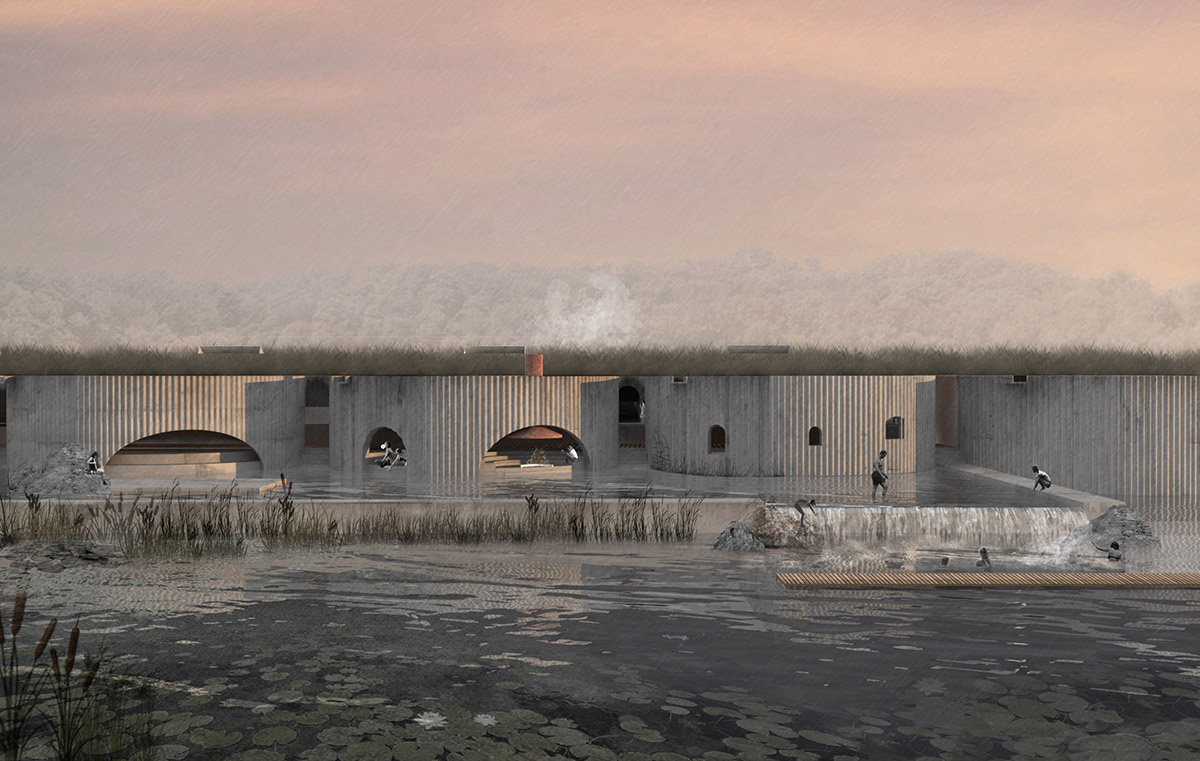
A thesis proposal by Canadian designer Liyang Zhang breaks down boundaries between self and the other and clean and dirty spaces within the scope of this wastewater treatment plant proposed within the Don Valley ravine in Toronto.
Titled Geographies of Urban Filth, Zhang's thesis studies how our cultural understanding of dirt and cleanliness are bound to issues of class and race and how they are manifested within urban and spatial design.
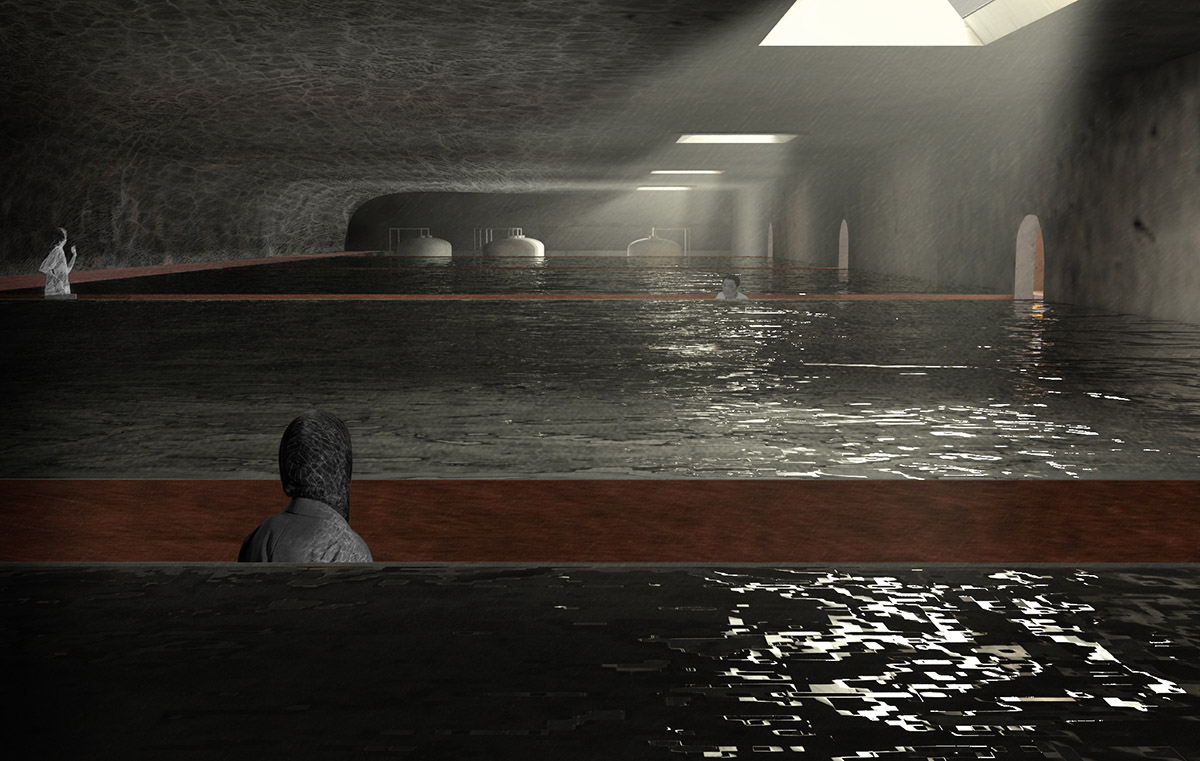
A shared discomfort between strangers within the wastewater treatment plant
Liyang Zhang, based in New York City, is the founder of Liyang Zhang Architecture +Design and Zhang recently completed Master's degree in Architecture from the University of Waterloo.
The thesis, sub-titled as Rethinking the Spatial and Social Constructs of Dirt and Cleanliness, was supervised by Rick Andrighetti. "Boundaries are formed between clean and dirty, familiar and foreign, us and them, through the rejection of matter that is disturbing or threatening to us," said Liyang Zhang.
"The city carries with it multitudes of identities, consequently forming divided groups and communities within spaces of belonging and exclusion."
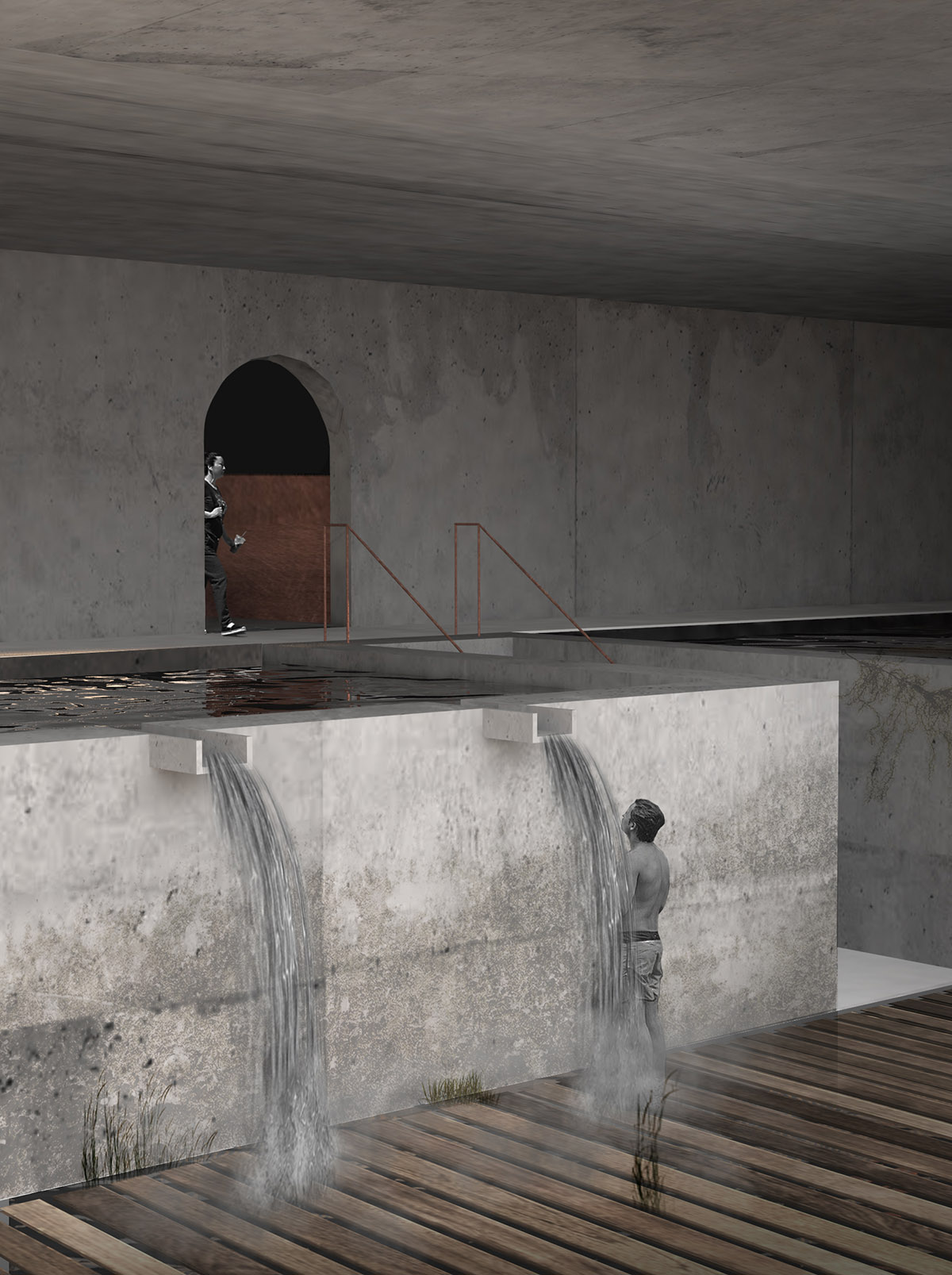
Filtered wastewater flows out through spouts for showering. The water then falls under the floor boards and into the wetland for further treatment before entering pools.
Thus, the thesis proposes a theoretical approach which questions our current conventions and practice of categorizing spaces, unearthing and bringing us in touch with the rejected ‘other’ within the city and within ourselves.
This thesis grounds itself on existing ideas of identity and otherness by Julia Kristeva, R.D Laing, Krzysztof Wodiczko and Mary Douglas. In Julia Kristeva’s essays on abjection, she describes abjection as the discomfort caused when impurities and contamination become a threat to one’s own identity and order.

A comfortable vulnerability
It is when borders that are meant to protect us from the other, become ambiguous. The inherent fear of the abject breeds an obsession for purity which erases opportunities to engage with and understand those other to ourselves.
These ideas of the self and the other, cleanliness and dirt, are explored through the intervention of the North Toronto Wastewater treatment plant central to three physically and socially disconnected neighborhoods of different income levels and ethnic groups.
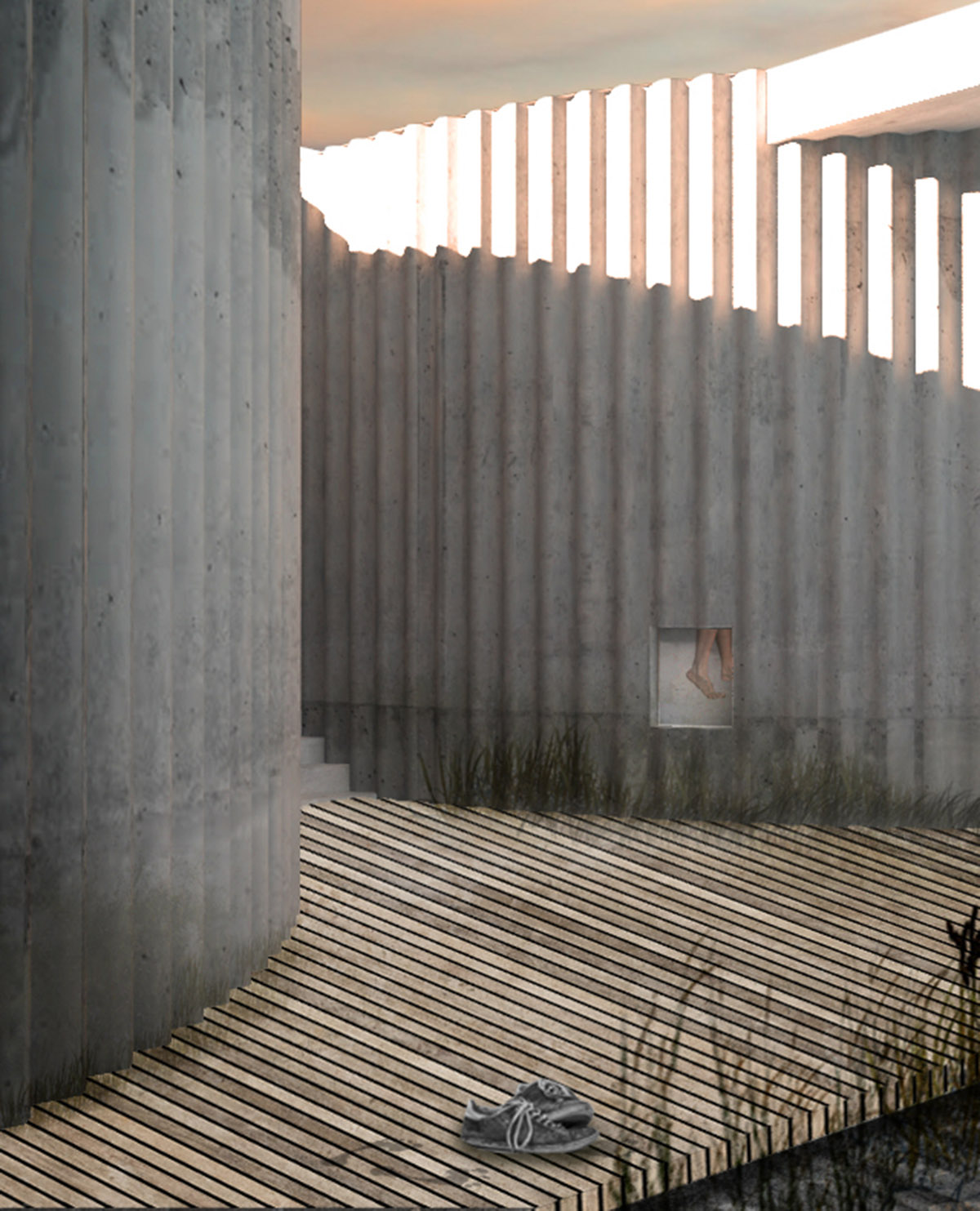
Change-rooms from outside-in
Zhang's treatment plant sits hidden and disguised below city level within the Don Valley ravine, collecting and filtering wastewater from these neighboring communities and releasing it back into the Don Valley River.
Mary Douglas examines our cultural understanding of dirt asserting that dirt only exists through our categorization of space. Materializing these ideas into spatial design, the design proposal seeks to challenge the tension that the pure vision of the city has with its dirtier and wilder counterpart which is the wastewater treatment plant, the ravines, and the sewers.
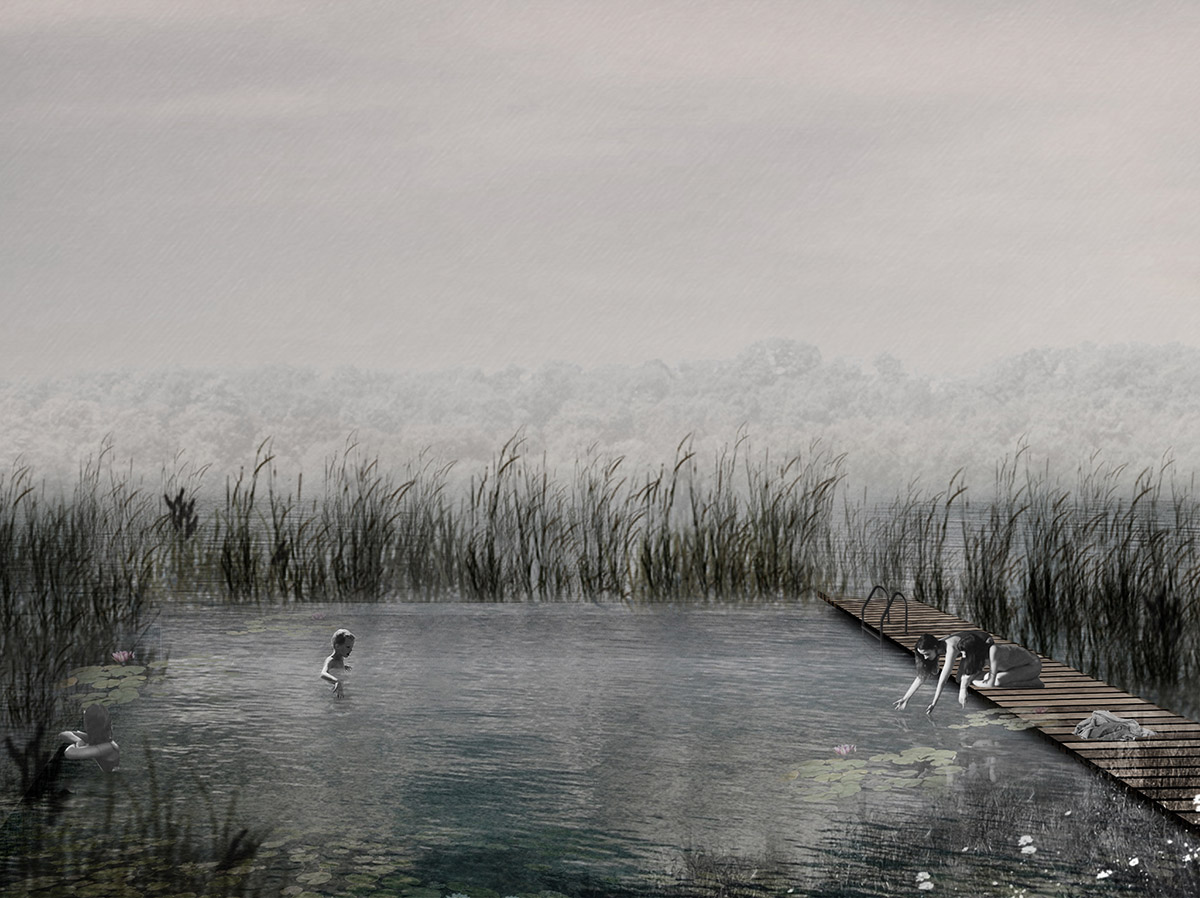
A found space shared between strangers
The design proposes the breaking down of boundaries between perceived “clean” and “dirty” spatial and social constructs with the insertion of a public space and bath within the wastewater treatment facility.
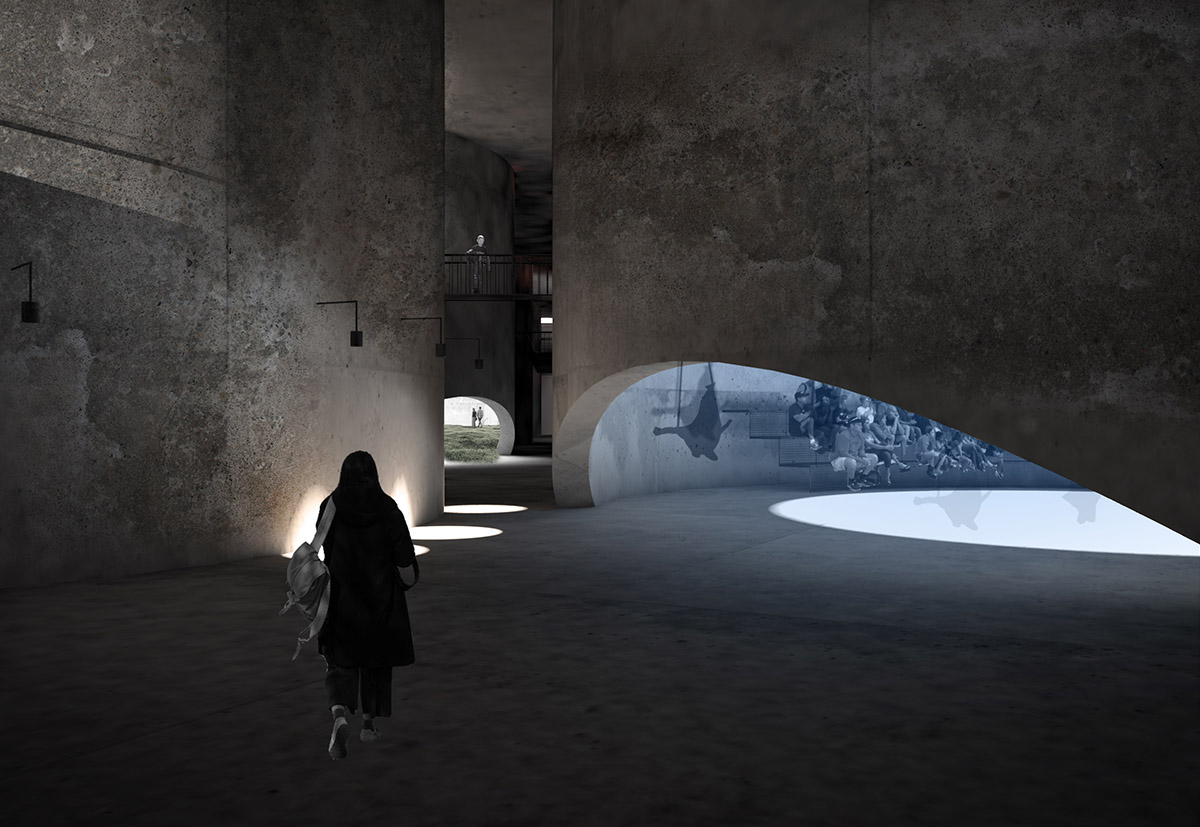
An arts and performance space within the decommissioned digester tanks
The departure from the safety of the familiar city, and entrance into ambiguous marginal territories, allows one to experience moments of vulnerability where the questioning of one’s own identity and reflection of one’s own strangeness allows for a deeper understanding of the other.

Plan
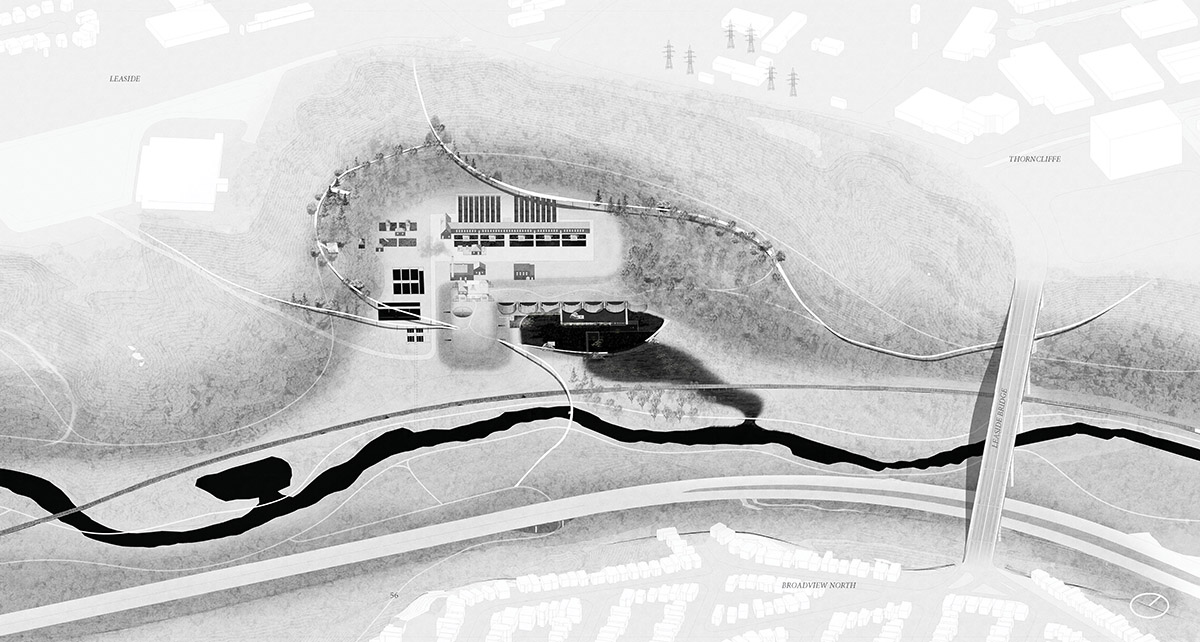
Site plan
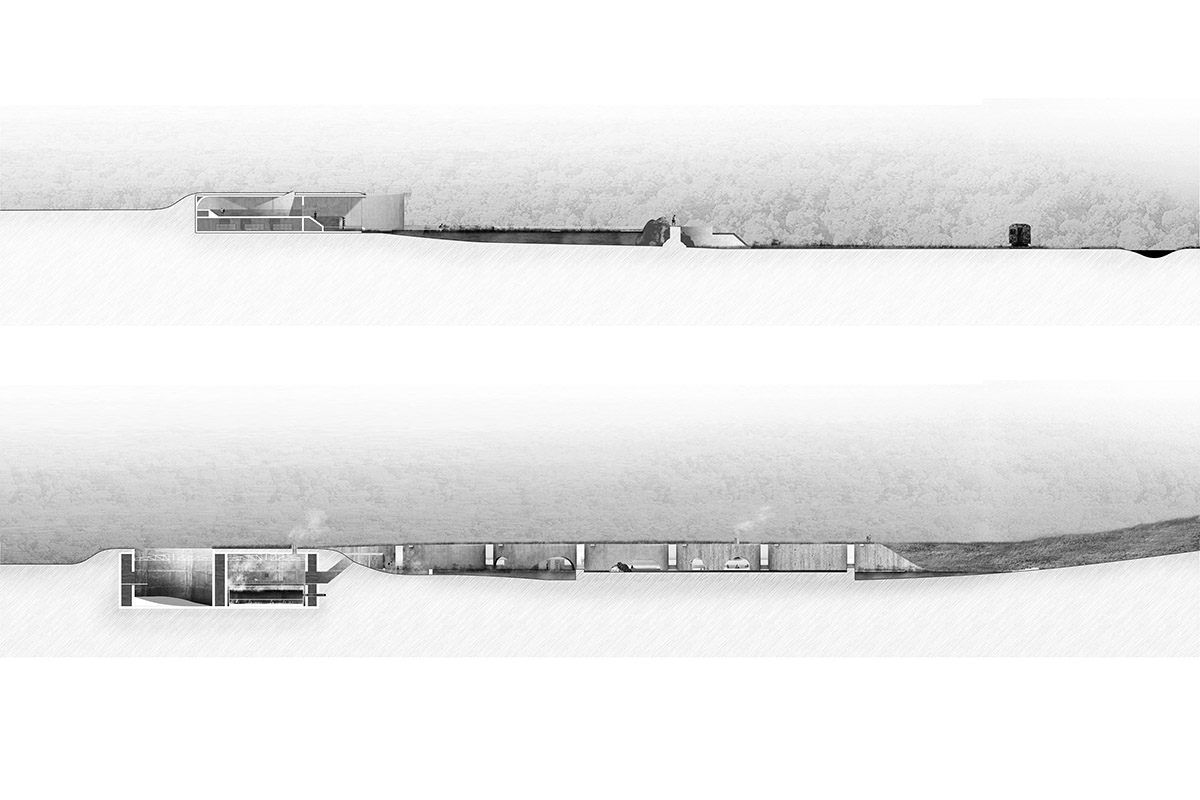
Sections
With the appropriation of the wastewater treatment plant, the strangeness of oneself within the foreign environment allows the stripping of borders to confront the strangeness of another.
Top image: Wetland swimming pools
All images © Liyang Zhang
